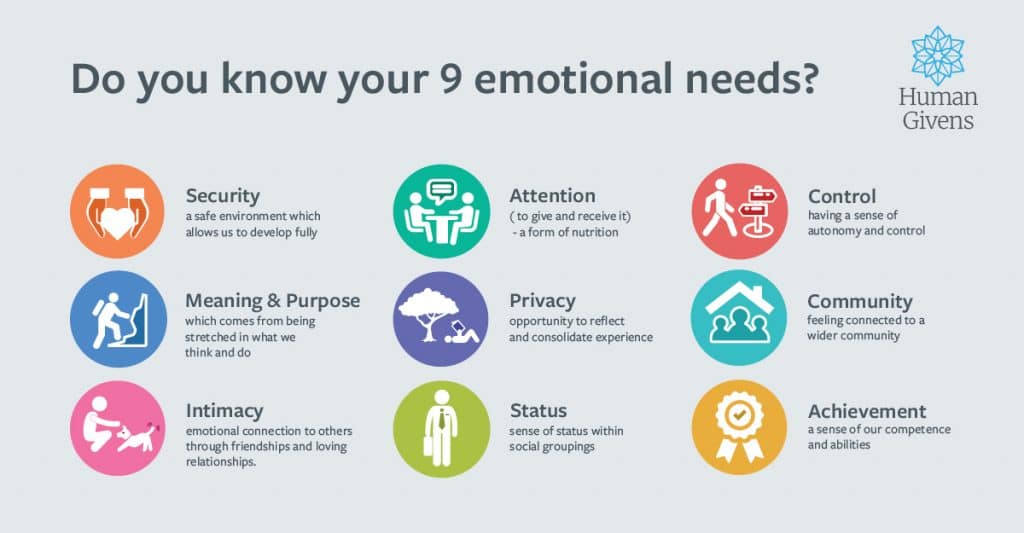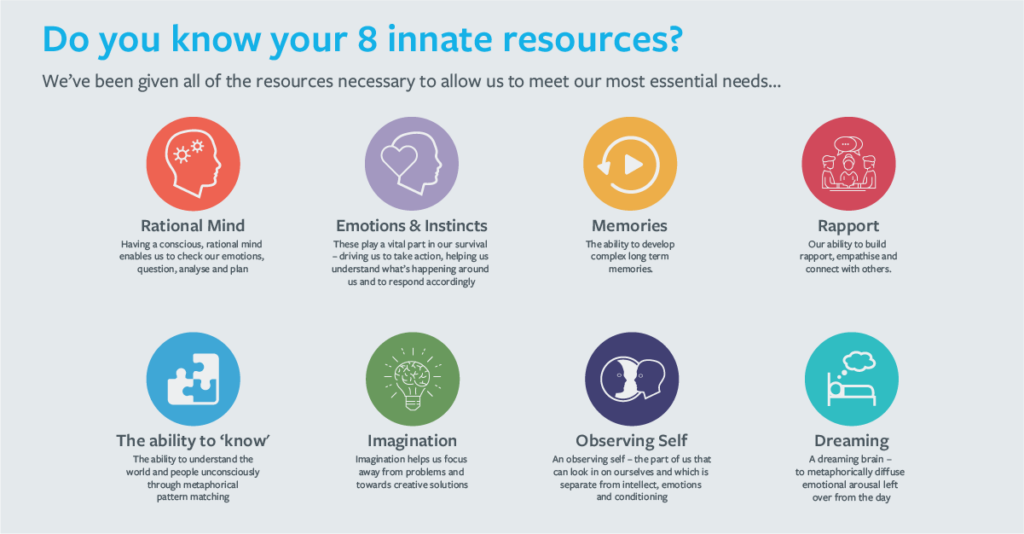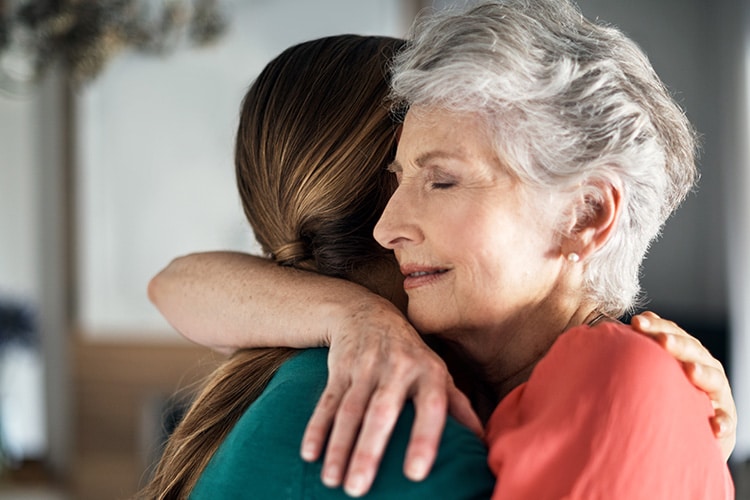What makes the human givens counselling approach so different
The term human givens refers to the givens of human nature – our essential physical and emotional needs and the innate resources we have to help us fulfil them. It is when needs are not well met in balance or resources are inadvertently being misused that problems with mental health occur.
Frances was working as a volunteer counsellor at a bereavement service to help her develop her skills while she was still in training. She had been seeing Sue, a 55-year-old widow, for about a year. Sue seemed as sad and hopeless about her future as when they had first met, but Frances ploughed on with her newly acquired ‘person-centred skills’, which entailed helping Sue to express her emotions and empathically acknowledging and feeding back what Sue said.
“So you feel really sad today and can’t face the long trip to go and stay with your daughter for the weekend, even though you would love to see her and your little grandson.” A tearful Sue would agree.
It just so happened that, during Frances’s counselling course, a visiting tutor mentioned the human givens approach, with its emphasis on identifying unmet emotional needs and helping people hone or develop skills to meet them.
Fascinated, Frances started to attend human givens seminars and workshops. “I was excited to learn the causes of depression and how to interrupt the cycle, how to deal with panic attacks and phobias and how to understand behaviour not in terms of outdated theories but of brain science,” she said.

Frances guided Sue into a state of deep relaxation in which she encouraged her to be open to exploring her ideas for the future and to imagine herself putting them into practice. When Sue left the session, far from being suicidal, she was full of hope and plans for the New Year.
As Frances recalls, “After a year of listening intently and doing nothing but, unwittingly, embedding her depression more deeply, I discovered that she had done all she needed to do to bring about positive change after just one human givens session. I saw her just once more, and she was like a different person.”1
The term human givens refers to the givens of human nature – our essential physical and emotional needs and the innate resources we have to help us fulfil them. It is when needs are not well met in balance or resources are inadvertently being misused that problems with mental health occur.
We all know that we have physical needs, which must be sufficiently met to enable us to survive and thrive. But people often don’t realise that certain emotional needs are just as crucial for both our mental and physical health. Decades of health and social research have revealed, for instance, that a sense of security, intimacy, social connection, status, autonomy and control, competence and achievement, and meaning and purpose are also vital, if we are to stay in good health and feel fulfilled in our lives.
Our innate resources for helping us meet these needs include the ability to build rapport, empathise and connect with others; to learn, problem solve, remember and plan; to use our imaginations productively; and to step back and take an objective look at our circumstances. Although we have these innate resources, sometimes we have not learned to use them fully – or unwittingly misuse them, such as when we imagine catastrophe.
The human givens approach is based on these basic understandings about human nature, rather than a focus on symptoms. So, if someone comes to see a human givens counsellor with depression, the emphasis is not on checking to see whether they fulfil all the criteria for a diagnosis of depression (loss of interest in pleasures, poor sleep, loss of concentration, suicidal thoughts etc), highly important though this information is, but on seeing what is not working in the person’s life and finding ways to address that, through opening up new perspectives, discussing new courses of action and teaching new skills to enable change to be made.
It might be that Sue, for instance, had had to care for her unwell husband for some years, during which time she lost touch with many friends. After he died, she had fewer people to turn to and became even more withdrawn, with everything becoming too much of an effort – even seeing her beloved grandson. She could see no future because she dwelt constantly on the past and what she had lost. She had lost emotional connection, meaning and purpose, and any sense of achievement.
The important thing is to start doing things differently. People who are depressed very often say, “I’ll take up singing /badminton /take my grandchildren out again when I am better,” and we are likely to reply, “Until you start singing/playing badminton/taking your grandchildren out, you won’t be better”.
The important thing is to start doing things differently.
All human givens counsellors are taught how to make use of guided visualisation – where, in a deeply relaxed state, people can safely rehearse doing something different, using what they have learned (for instance, how to use deep breathing to calm down from anxiety) to cope with any setbacks and to experience viscerally the power of realistic positive expectation.
Because what we focus on is what we tend to get, as Sue’s story so vividly illustrates.
References
1 Masters, A (2008). A cloud lifted… Human Givens, 15, 3, 34–8. (Some detail has been added for illustrative purposes.)
2 Griffin, J and Tyrrell, I (2003, 2013). Human Givens: the new approach to emotional health and clear thinking. HG Publishing.







